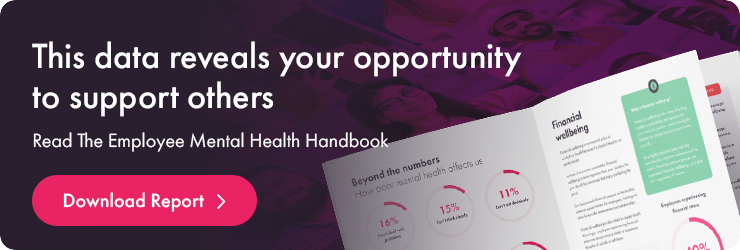You can’t manage what you can’t measure. So, to help you create workplace health initiatives that are genuinely effective, we’re summarising our employee wellbeing statistics for 2023 in this article.
Employee wellbeing has been thrust to the forefront in the last two years in a way that has never happened before.
Last year, our organisations and their people were presented with new and ever-changing challenges.
These challenges affect every employee differently, so it’s crucial organisations can create effective wellbeing strategies to target issues that really matter. And the only way to create really effective wellbeing strategies is through a data-driven approach.
For years, Champion Health has been gaining these insights into all areas of employee wellbeing. Below, we’re summarising our findings for the past 12 months.
Employee wellbeing statistics
Every year, we create The Workplace Health Report, which highlights our anonymous employee wellbeing statistics generated over the past 12 months.
In this article, you’ll get an overview of these employee wellbeing statistics – from mental health to MSK pain – so you can discover the health trends prevalent in organisations like yours right now.
We believe this will help you to cut through the noise in workplace health, so you can start targeting your wellbeing initiatives for maximum impact.
For a closer look at each area of wellbeing, you’re encouraged to follow the links under the relevant sections below.
Stress
As an employer, you’re always striving to find that ‘sweet spot’, where your people are productive and challenged but not at the expense of their health or happiness.
Currently, our data shows that 76% of our professionals are experiencing moderate to high levels of stress – a percentage increase of 13% compared to data from 2022.
However, everybody’s capacity to manage stress is different, which raises the importance of an individualised approach to stress management.
For example, 35% of employees report that the stress they experience at work is having a negative impact on them.
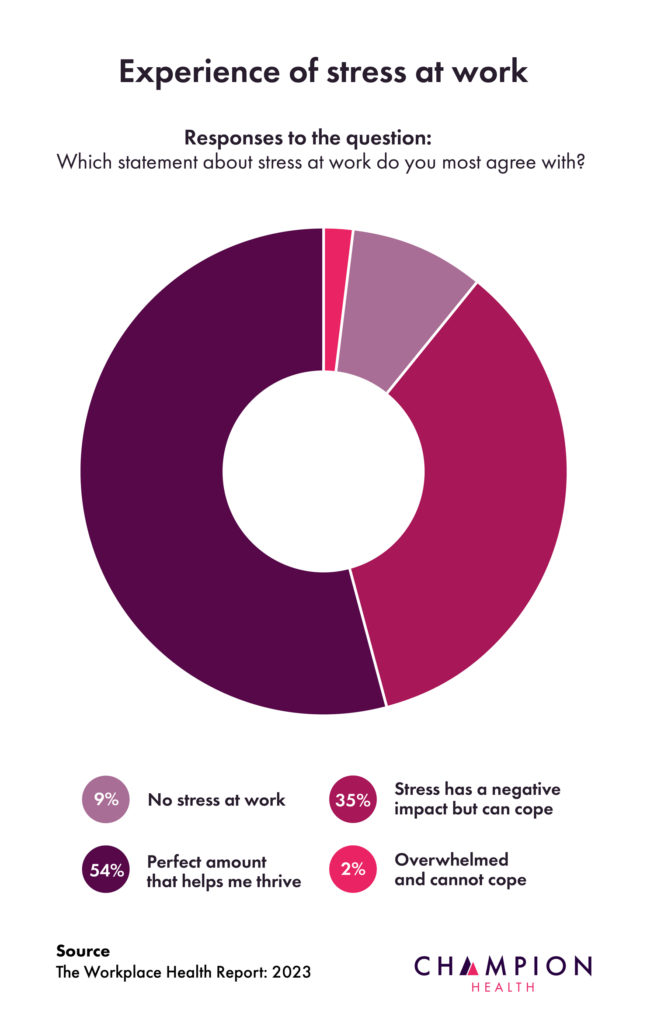
Anxiety and depression
Across the board, high numbers of employees are experiencing symptoms of anxiety and depression. Our data reveals that 60% of employees feel anxious and 56% are experiencing symptoms of depression.
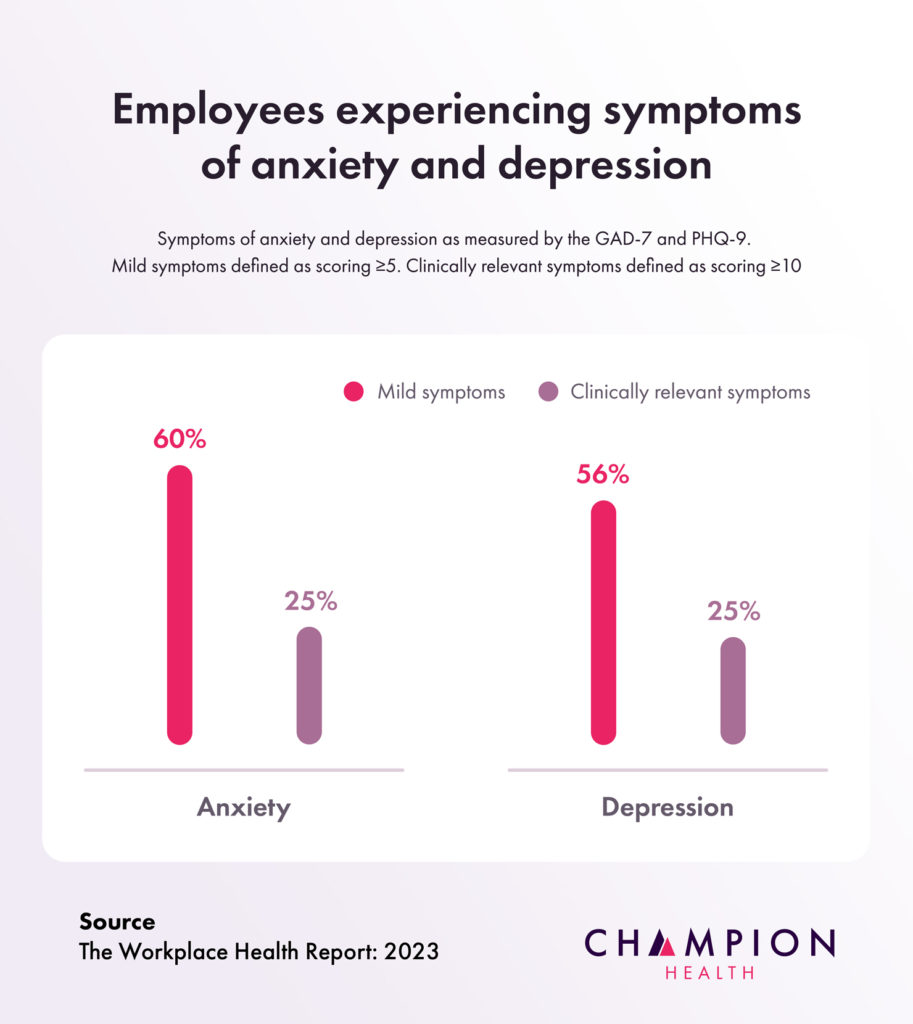
These figures are similar to those published in Champion’s previous data release in January 2022.
And whilst most employees do not report a current mental health diagnosis, 1 in 4 met the criteria for ‘clinically relevant symptoms’ of anxiety and depression, suggesting they would benefit from further assessment and support from a qualified mental health professional.
Poor mental health is also cited as a factor that impacts productivity for almost 1 in 5 employees, contributing to costly levels of presenteeism (on both a personal and business level).
Despite the best efforts of organisations, the data suggests that many employees are still struggling. Whilst this might not be solely due to factors at work, the effects are certainly felt in the workplace.
Musculoskeletal (MSK) pain
Musculoskeletal (MSK) health is a wellbeing issue that’s too often overlooked. But it’s having a significant impact on your employee’s health.
In the UK alone, 7.3 million working days were lost due to work-related musculoskeletal disorders in 2022.
Our data also shows that 41% of employees are currently experiencing MSK pain. While this number has fallen since last year, this shows that employee MSK health is still a significant challenge facing employers.
The knock-on effects of this are professional as well as personal, with 17% of employees reporting that MSK pain negatively impacts their productivity at work.
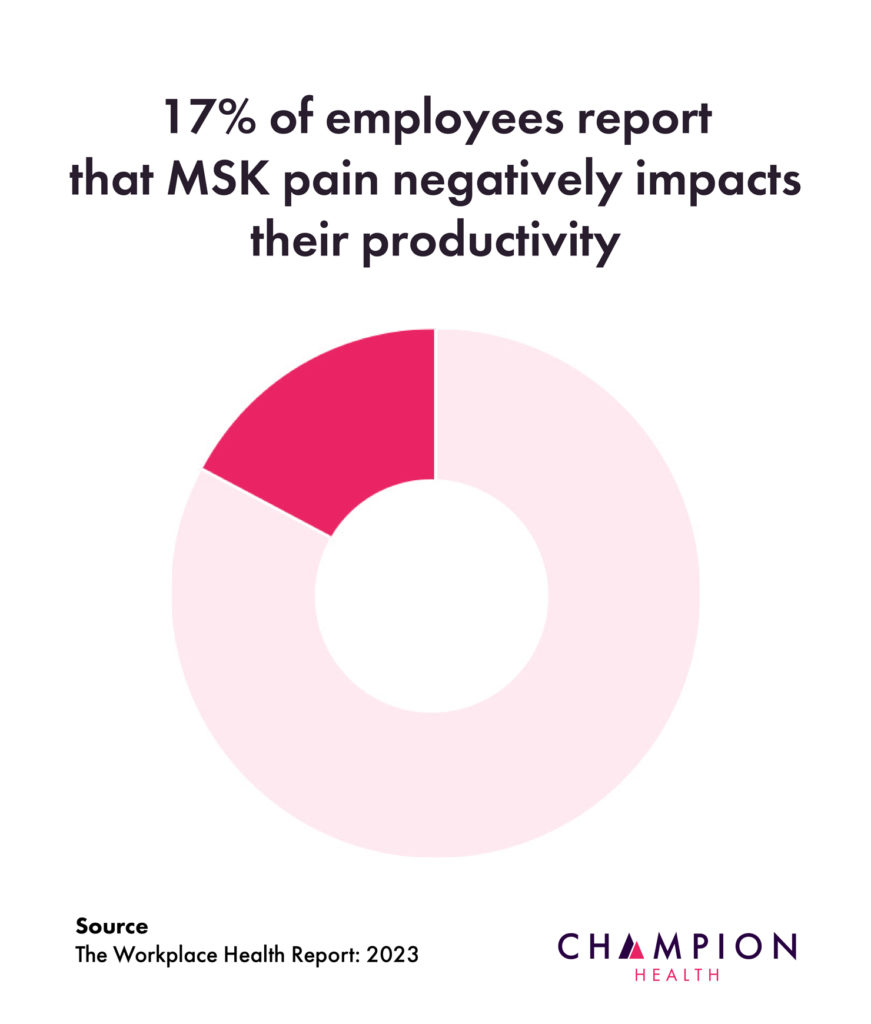
The data also shows that many employees experiencing MSK pain are not seeking the
support they need from a specialist. Less than half of those experiencing MSK pain report actively seeking assistance.
Given that MSK issues can be managed successfully when treated early, this is a key area in which employers can provide effective support.
Financial health
With living costs soaring, financial wellbeing will be top of mind for many people right now.
That is reflected in our data, which shows that financial pressure is affecting 37% of individuals. This makes financial pressure the leading external cause of employee stress, ahead of relationships (32%) and parenting (29%).
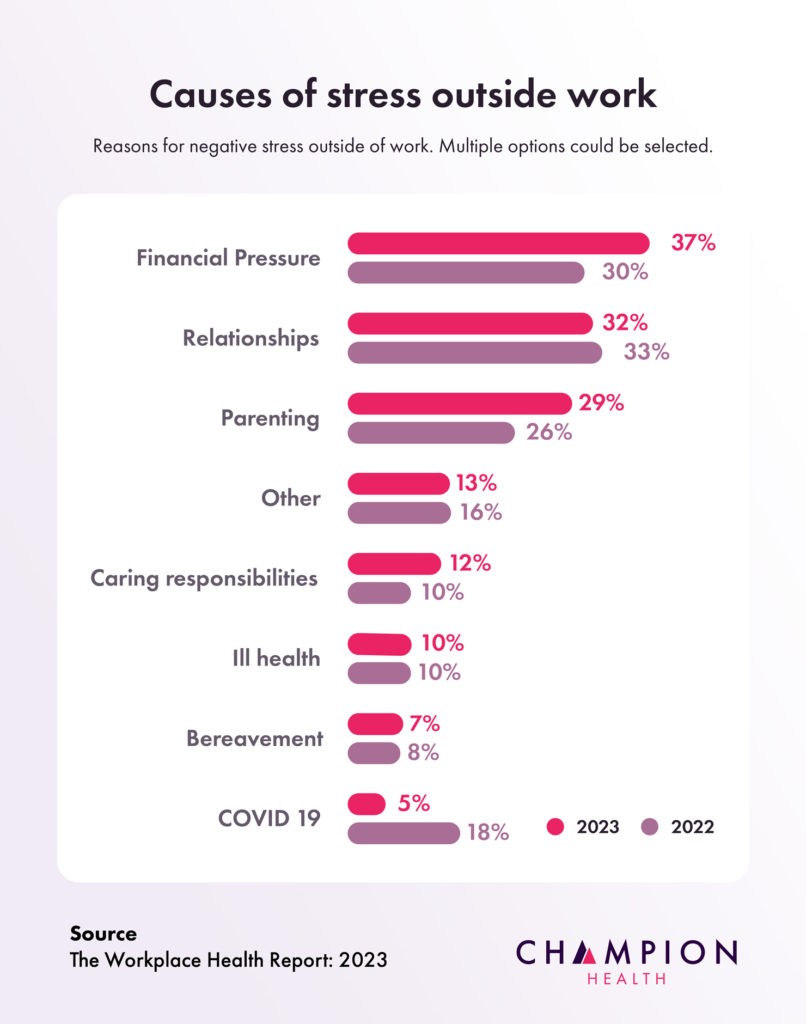
Like anxiety and depression, our data also shows that financial pressure is disproportionately affecting your younger employees.
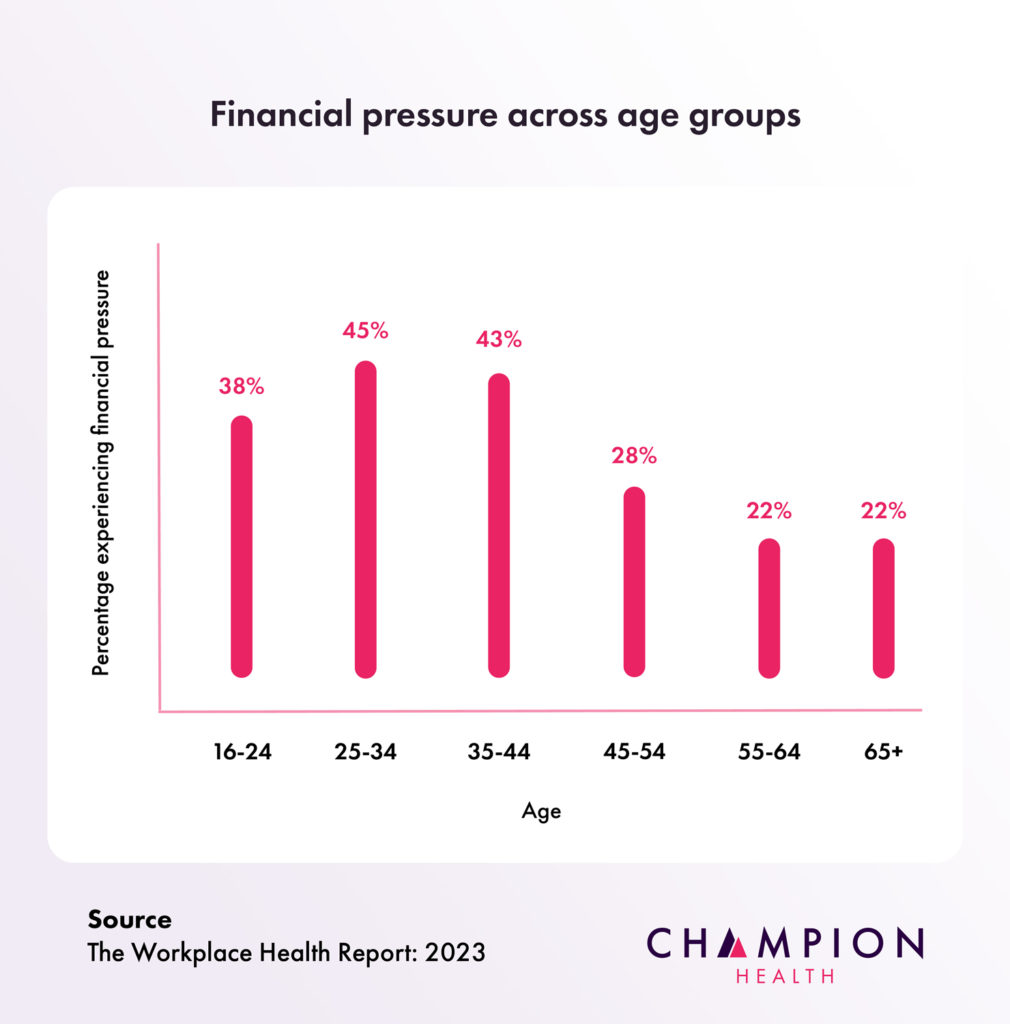
For more data, we’ve gone into more depth around financial health statistics in this report.
Data compared with 2022
During 2022, Champion found that 67% of employees experienced moderate to high levels of stress, while 34% experienced negative stress at work.
In terms of anxiety, similar levels were reported, with 58% of individuals experiencing at least mild symptoms of anxiety last year.
Finally, when it came to reporting on levels of depression, 52% of employees said they had experienced at least mild symptoms of depression, with 22% reporting symptoms that were clinically relevant.
How can employers help?
The message is clear for employers: wellbeing in the workplace is a top priority, for both your people and your business.
Many businesses already have strategies in place, but we know they can be improved. What’s more, if you don’t have a strategy in place, it’s time to start thinking.
From our work with employers across the UK, we know that organisations are in desperate need of proactive wellbeing strategies that address 100% of the workforce.
Rather than relying on reactive strategies that only reach employees when they hit ‘crisis point’, proactive strategies work across the organisation to reduce the likelihood of these crises.
For a deeper dive into the data, read the full Workplace Health Report.

